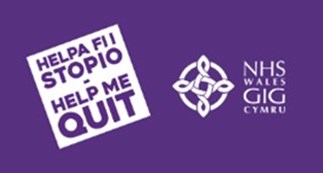November is lung cancer awareness month, our Policy and Public Affairs Manager, Greg Pycroft, reflects on the inequalities long associated with lung cancer in Wales and notes the activity we can expect to see over the course of the coming twelve months.
Lung Cancer in Wales
Earlier this year Tenovus Cancer Care published "Tackling Inequalities: Lung Cancer". The report sets out the challenge posed by the disease, the inequalities at the heart of the problem, current preventative interventions and more innovative approaches being developed to identify and diagnose lung cancer earlier.
Around 1900 people die every year from lung cancer, making it the biggest cause of cancer death in the country.
So many people die as a result of late diagnosis. Around 45% of people are diagnosed with stage 4 lung cancer when the cancer may have spread around the body and fewer viable treatment options exist.
Yet despite its seriousness, a lung cancer diagnosis need not be a death sentence. As the image below illustrates, caught early enough, rates of survival are reasonably high.






